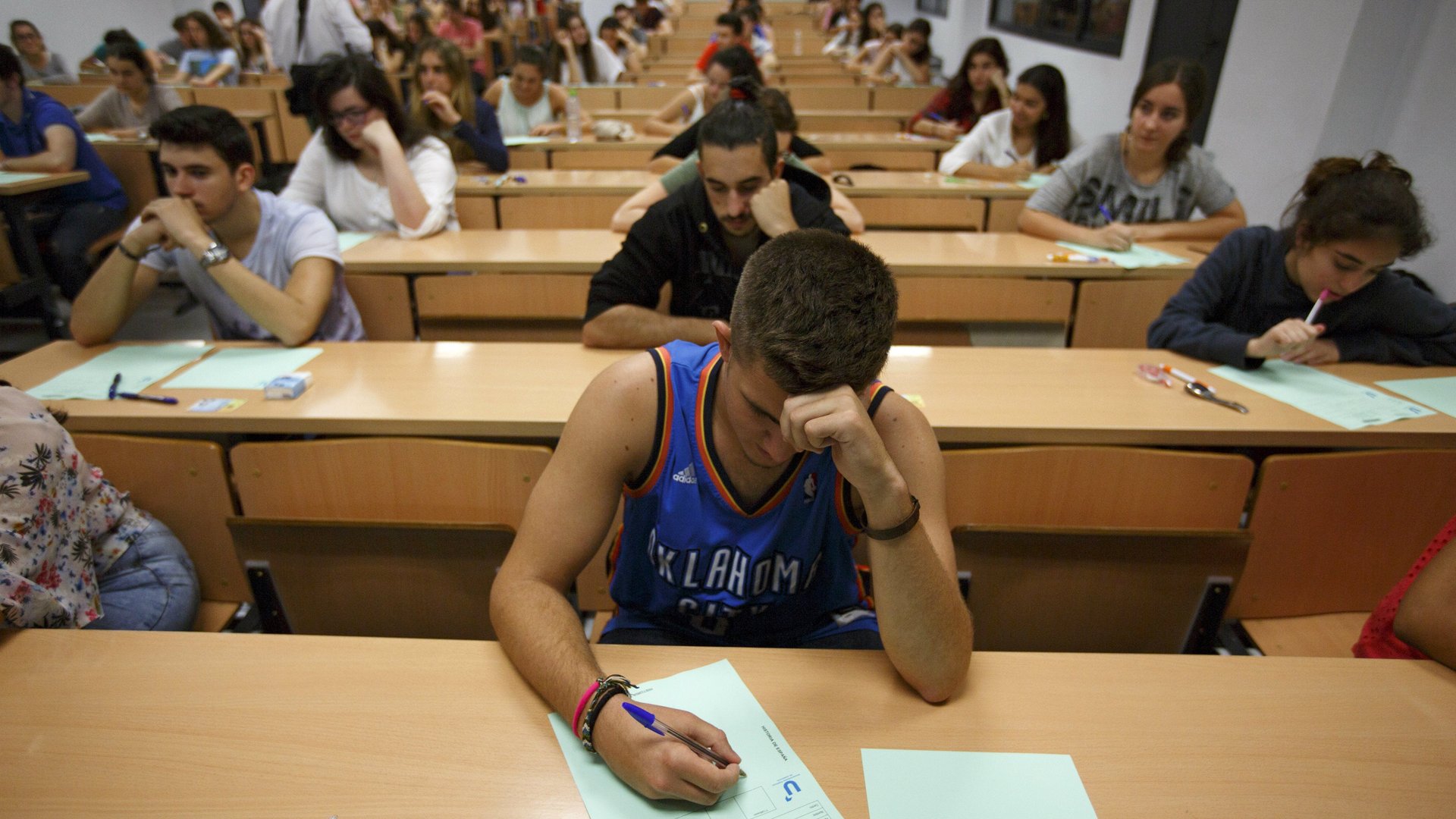The Ivy league want students who’ve had meaningful experiences, not just achievements
If you ask thousands of teenagers what is most important to them, you’d think they might answer: friends or family or sports or their phone.


If you ask thousands of teenagers what is most important to them, you’d think they might answer: friends or family or sports or their phone.
But when Richard Weissbourd, a lecturer and researcher at Harvard’s Graduate School of Education, surveyed more than 10,000 kids (pdf) about what was important to them (and their parents and teachers), 80% picked high achievement and happiness. Only 20% picked caring for others. And kids were three times more likely to agree with this statement: “My parents are prouder if I get good grades in my classes than if I am a caring community member in class and school.”
Weissbourd wants to change that.
His plan, called “Turning the Tide: Inspiring Concern for Others and the Common Good through College Admissions” (pdf) is an attempt to change the college admissions process to prioritize real service and work and cut back on the marathon-length list of extra-curricular activities kids do to manufacture the perfect college resume.
So far, it has been endorsed by 65 colleges and universities, including all of the Ivy league.
“The college admissions process is a tremendous opportunity to send a powerful message to kids about what colleges care about and value and what society values,” Weissbourd told Quartz.
The report outlines three groups of changes: make service meaningful; recognize more forms of community engagement to capture work across different race, cultures and class groups; and redefine achievement to level the playing field and reduce the pressure on everyone.
For example, community service should be authentic, driven by the student, and continuous—ie, longer than spring break. It should be supervised by an adult with whom the student can reflect. Essays and recommendations should reflect whether the engagement, and impact were real.
The idea, he says, is for kids to do something meaningful, rather than racing off to the far corners of the earth to do something fleetingly impressive. Service to one’s family, such as having a job, or caring for a younger sibling, should carry the same, if not more weight, than raising money from dad’s law partners.
“That’s a lot more significant than a brief stint in Belize or Costa Rica,” he said. It will also help lower income students without access to tutors, community service travel agents, and the time to pursue 20 AP courses.
To reduce “undue achievement pressure,” the report suggests:
- Prioritizing the quality of extracurriculars versus the quantity of them.
- Discouraging too many advanced placement or international baccalaureate courses
- Discouraging the use of private guidance counselors by rejecting the kids who clearly use them. Weissbourd says “most admissions officers can tell,” when kids use them.
- Asking colleges to consider making the SAT and ACT optional to reduce test pressure. At a minimum, kids should not be taking them more than twice.
There are plenty of reasons to be skeptical about whether schools will really change their ways. Harvard, for example, continues to have a controversial legacy policy, and global competition has raised the stakes for getting in.
But the number of schools which signed on to it, including Princeton, Yale, University of Michigan, and Harvard, indicates a desire for change. And the tsumani of bad news around student mental health has everyone looking for solutions, Weissbourd says. “They are worried about the number of kids who come to college stressed and burned out.”
Weissbourd is careful not to lay blame solely on the steps of the colleges. He sees parents as playing a big role too. He wants them to stop focusing on a small handful of elite colleges and see the array of opportunities out there. If they do, their kids might too.
In the report releasing his survey work, he noted: “Our youth’s values appear to be awry, and the messages that adults are sending may be at the heart of the problem.”
If college admissions offices are willing to make some changes, maybe we should too.